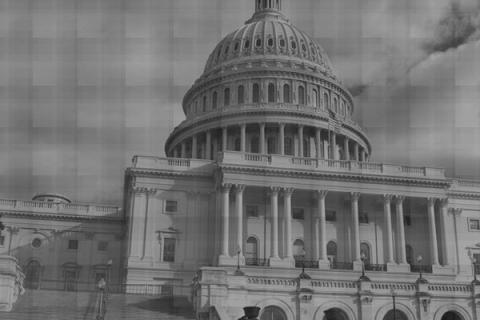Supporters of independent and third party candidates have long decried the draconian laws regulating ballot access in states across the country. They have argued that the ballot access system, which has been constructed by Democratic and Republican lawmakers over the last century, deprives voters of choice, unreasonably burdens upstart candidates for public office, and insulates entrenched incumbents from political competition.
Virginia's ballot access laws are so restrictive that the majority of candidates for the Republican party's presidential nomination failed to make the cut. Five GOP presidential hopefuls have now joined together in a lawsuit challenging the constitutionality of the state's ballot access regime, providing a rare opportunity to bring national attention to the issue of ballot access reform.
As it stands now, only two candidates have qualified for Virginia's GOP primary election: Mitt Romney and Ron Paul. Newt Gingrich and Rick Perry were refused access to the ballot because they did not gather the requisite number of valid signatures, 10,000, including the signatures of 400 qualified voters from each congressional district in the Commonwealth who attest that they plan to cast a vote in the election. Given this formidable barrier to entry, Michelle Bachmann, Rick Santorum and Jon Huntsman did not even submit any petitions in the state and instead focused their resources elsewhere.
But why not have a high bar for candidates who seek the nation's highest office? Because unreasonable ballot access laws unduly restrict the choice of voters and over-burden would-be candidates for public office. Newt Gingrich and Rick Perry agree.
“We're getting an amazing number of people who . . . believe Virginians ought to have the right to choose and shouldn't be restricted to two people,” said Gingrich in a statement on Christmas day.
Another aspect of Virginia's ballot access code requires that petition circulators be either eligible or registered voters in the state, which proved to be extremely problematic for Rick Perry. “Virginia's requirement for petition circulators to be either eligible or registered qualified voters in the state is a severe burden on Plaintiff's freedoms of speech and association,” states Perry in the lawsuit challenging the constitutionality of the state's ballot access code. Gingrich, Bachmann, Santorum and Huntsman have now all joined Perry in the suit.
“Welcome to the world where adherents of the Libertarian Party, the Greens, or the Constitution Party live: where their exhausting effort and huge expense meets bureaucracy, unending paperwork and needless legal hurdles -- before we are even allowed our place at the starting line,” wrote Marc Montoni, the Secretary of the Libertarian Party of Virginia, with a hint of schadenfreude.
He continued:
"Virginia’s primary petition requirements were copied from the laws originally written to keep independents and third parties off the ballot. For a century, Democrats and Republicans colluded to establish and tighten ballot-access standards so much that voter choice has become practically nonexistent. This makes it difficult for us in the alternative & independent candidate sector to feel much sympathy for the ‘major’ candidates when their own laws snare them."
Meanwhile, Virginia's Attorney General, Ken Kuccinelli, is planning to file emergency legislation to loosen the state's ballot access restrictions. “Virginia owes her citizens a better process,” he said in a recent statement to Fox News.
Like many advocates of alternatives to the Democratic and Republican parties, Marc Montoni has a well-developed set of proposals that would move the state in the right direction. He calls for reducing signature requirements by 90%, eliminating the witnessing requirement for signatures and the residency requirement for petitioners, and allowing for electronic signature gathering online, among other things.
“Anyone who thinks requiring thousands of signatures to get on the ballot is compatible with a free society needs to research the history and justifications for these oppressive laws a bit more,” said Montoni.
The controversy in Virginia has sparked reflection on the overly restrictive ballot access regime in other states as well. An editorial in Indiana's News Sentinel has called on the state to loosen its ballot access laws.
“Virginia isn't even listed among the five worst states for access. But Indiana is, along with Oklahoma, Texas, Georgia and North Carolina. The troubles of Perry and Gingrich in Virginia should be a strong incentive for the Hoosier political establishment to start making access a little easier here,” stated the editorial.
Some even argue that California's top two open primary system is, in effect, just one more means of restricting access to the general election ballot since it only allows two candidates to advance beyond the primary. But that makes ensuring access to the primary election ballot all the more important. In the Golden State, candidates can either pay a filing fee or collect a modest number of signatures, but the rules governing who can sign and circulate a candidate's petitions are relatively stringent. For instance, petition signers and circulators must be registered voters in the district where the candidate is running for office and no one may sign more than one candidate's petition for that office.
It's time to open the ballot in the United States to ensure that the election process serves the people rather than the ruling parties, special interests, and entrenched incumbents.

